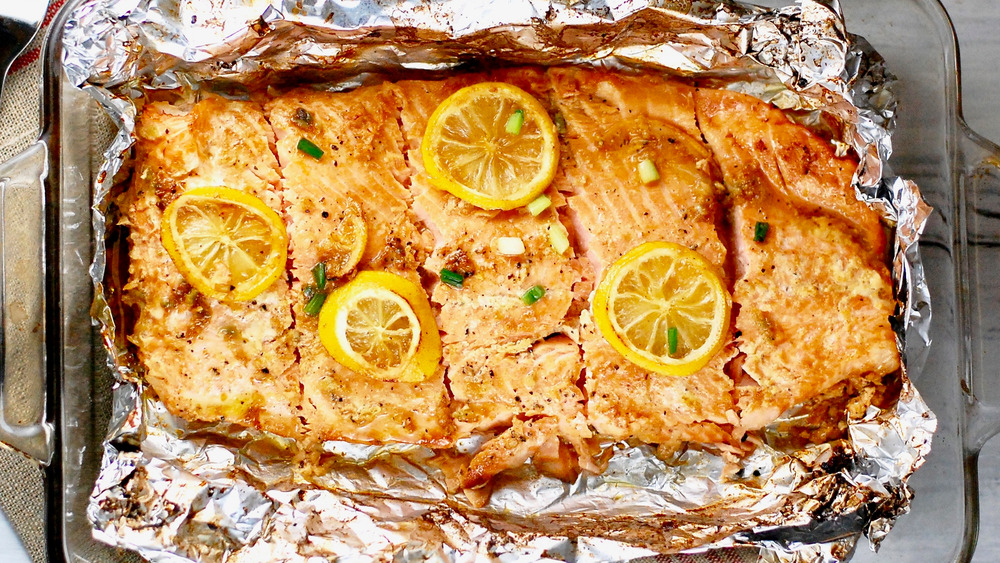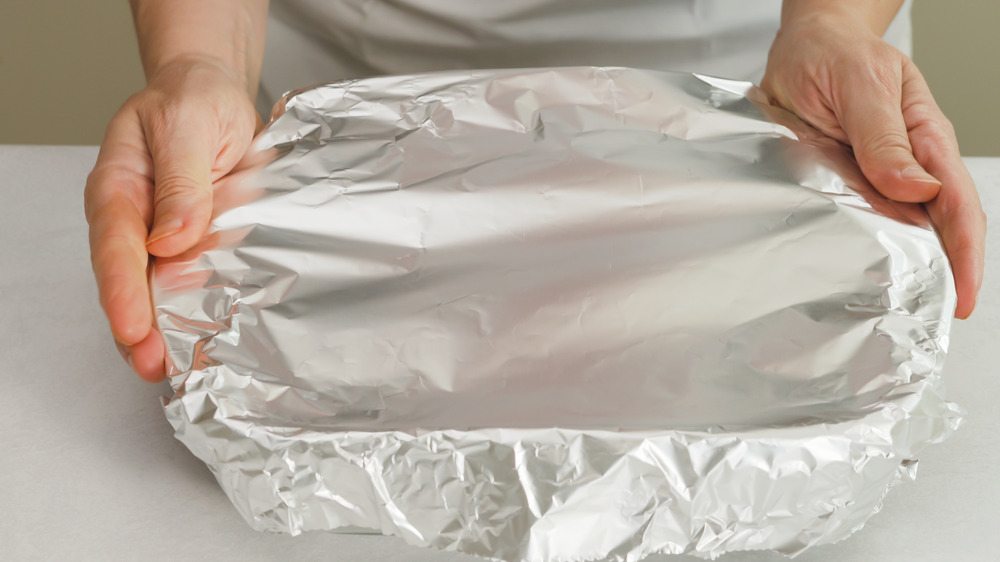Is It Safe To Cook With Aluminum Foil?
First used as candy wrapping in 1913, tin foil has been a kitchen staple for generations. And for good reason. It's convenient, affordable, and versatile. But over the last few years homeopathic beauty and health sites have pushed for foil's removal. Their concerns are based on a 2012 study published in the International Journal of Electromechanical Science and the long-debated role of aluminum in conditions like Alzheimer's, dementia, and autism.
Researchers involved in the study state that the amount of aluminum transferred to food from foil during cooking is outside the World Health Organization's accepted limit. Specific numbers changed depending on the food's acidity, the spices added, and how high the cooking temperature was. But in the end, it is easy to see why some people were concerned.
Don't throw away your aluminum foil, though. While this one study found that aluminum foil does leach some aluminum into foods, that's not the whole story. The 2012 report claimed "only small amounts of aluminum can be efficiently excreted by human bodies." But a study published in the journal, Neuroscience in 2011, found that humans only retain .06 to .4 percent of the aluminum they take in. This directly contradicts the 2012 study which offered no evidence to support its claim about the human body's ability to remove aluminum.
The truth about aluminum foil and our health
Unsupported claims aren't the only issue with the 2012 study or its claims about aluminum foil. There have been no studies since to back up their claims which are close to the same claims pushed by anti-vaccine believers who insist that aluminum in vaccines can cause autism. This belief has spread on social media to the point that the Centers for Disease Control and Prevention (CDC) has created a page dedicated to debunking this myth.
Further reading also calls into question the entire idea that aluminum can cause Alzheimer's or dementia. The Alzheimer's Association, an internationally recognized body of advocates and experts in the field of Alzheimer's, addressed the claim directly. According to their website, the connection between aluminum and memory loss began in the '60s and '70s and, "Since then, studies have failed to confirm any role for aluminum in causing Alzheimer's." The organization also goes on to say, "Experts today focus on other areas of research, and few believe that everyday sources of aluminum pose any threat."
Alarmist health claims can be hard to ignore, but when it comes to aluminum foil and your health, the amount you're ingesting from your food is likely insignificant, concludes Healthline. If you are worried about the amount you're consuming (which again, is likely small), you can make the swap to parchment paper. And if you want to learn even more, take a look at this PDF from the Agency for Toxic Substances and Disease Registry, an organization run by the CDC. It covers the most likely sources of aluminum ingestion from everything from over-the-counter medications to processed food.


